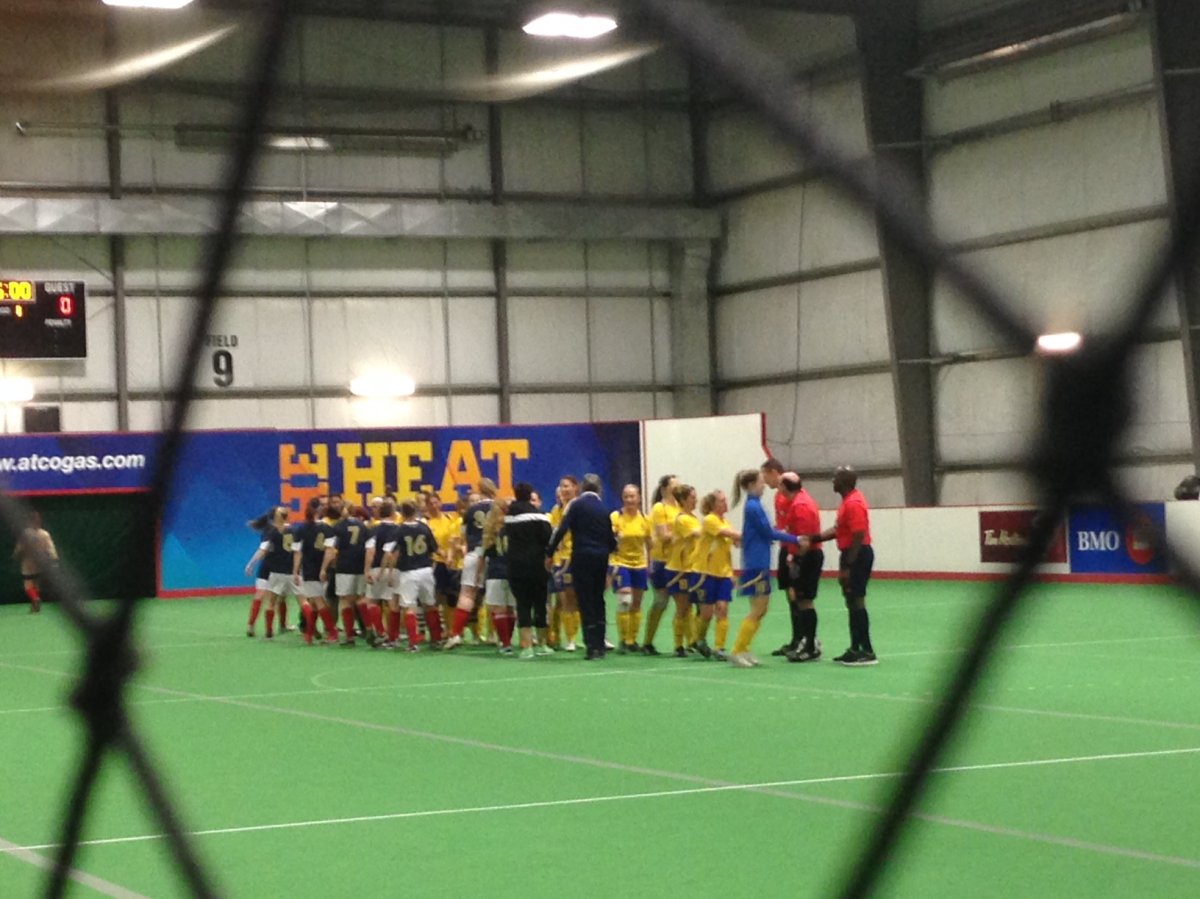Two Edmonton-area minor soccer leagues are banning post-game handshakes amid the coronavirus outbreak.

The Edmonton Minor Soccer Association (EMSA) announced effective Monday, players will not be allowed to shake hands at the end of their games. The St. Albert Soccer Association is taking the step as a precaution, in what it calls “a proactive approach to keep the spread of germs to a minimum.”
The decisions were made in light of the coronavirus outbreak that was declared a “public health emergency of international concern” by the World Health Organization on Thursday.
As of Friday afternoon, there were four confirmed cases of the virus in Canada: three in Ontario and one in British Columbia. There are no probable or confirmed cases of the coronavirus in Alberta, and AHS said the risk to Albertans is low.
READ MORE: We sent your unanswered coronavirus questions to an expert — and we have answers
“Immediately after, they will advance to their respective dressings rooms,” the notice dated Thursday said. It said the new rules applied to all competitions, genders and age groups.
EMSA said it was a proactive approach to stop the spread of any germs, should the virus become present in Alberta.
EMSA and SASA said anyone who displays symptoms of coronavirus will be sent home immediately and the organization should be notified.
SASA said players and coaches will refrain from shaking hands or giving high-fives at the end of games. Instead, they’re encouraged to say “good game” to the other team.
READ MORE: Facebook to limit spread of misinformation, false claims on coronavirus
Health care officials say every indication is that the current coronavirus is not airborne, and instead is transmitted like many other respiratory viruses through what is called “droplet transmission.”
“That’s generally larger respiratory secretion droplets, so things that are generated when you cough or sneeze and you’re infected with the virus,” Dr. Susy Hota, an infectious diseases physician and medical director of infection prevention and control at the University Health Network in Toronto, told Global News this week.
The drops will likely only spread about a maximum of two metres from the infected person, she said.
“Even just passing through that range, your risk is quite low. So, you’d really have to have enough continuous exposure to somebody in that kind of close proximity to get sick.”
Alberta Health Services said this strain of coronavirus does not appear to be as severe as others, such as SARS, and many patients have reported only mild symptoms.
READ MORE: What we know about how the new coronavirus is spread
According to AHS, symptoms for the new coronavirus are similar to those for influenza or other respiratory illnesses. They can range from mild to severe and include:
- Fever
- Cough
- Difficulty breathing
- Pneumonia and kidney failure
READ MORE: Defining common terms used to explain the coronavirus illness
The majority of cases have reported mild symptoms. However, there is a risk of death in severe cases, the health authority said.
For more information on the coronavirus, visit AHS’s website.




Comments